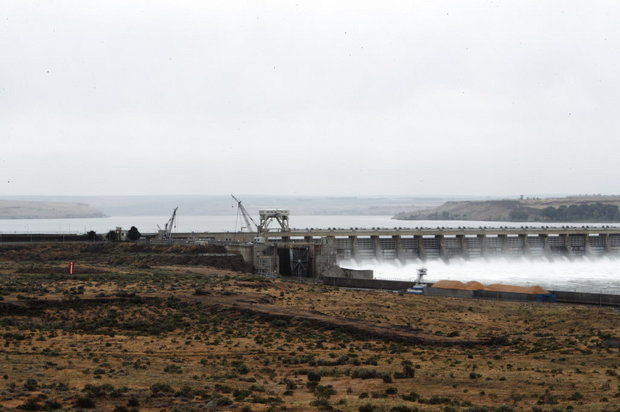forum
library
tutorial
contact

Federal Dams and
Preliminary Permits
by Todd Griset
JD Supra Business Advisor, April 11, 2016
|
the film forum library tutorial contact |

|
Federal Dams and
by Todd Griset
|
 U.S. federal entities own dams with untapped hydropower potential that could be developed by private parties -- but a recent regulatory decision highlights the difficulty of winning key approvals when the federal dam owner opposes the project. The Federal Energy Regulatory Commission's April 5, 2016 denial of an application for a preliminary permit for the McNary Lock and Dam Project illustrates this dynamic.
U.S. federal entities own dams with untapped hydropower potential that could be developed by private parties -- but a recent regulatory decision highlights the difficulty of winning key approvals when the federal dam owner opposes the project. The Federal Energy Regulatory Commission's April 5, 2016 denial of an application for a preliminary permit for the McNary Lock and Dam Project illustrates this dynamic.
The U.S. Army Corps of Engineers owns and operates a 980-megawatt hydroelectric project at the McNary Lock and Dam on the Columbia River in Oregon and Washington. The project was authorized by the River and Harbor Act of 1945, and all its power units have been in operation since 1957.
But perhaps there may be untapped hydropower potential at the site that could be developed. In 2015, a company called Advanced Hydropower, Inc. applied to the Federal Energy Regulatory Commission for a preliminary permit, pursuant to section 4(f) of the Federal Power Act, to study the feasibility of the proposed McNary Dam Advanced Hydropower Project No. 14697. That project would utilize the existing McNary Dam, plus new facilities including a 34-megawatt turbine.
But by an order dated April 5, 2016, the Commission denied Advanced Hydropower's application. In doing so, the Commission cited judicial precedent that it "is not required to grant a preliminary permit application, so long as it articulates a rational basis for not doing so." It then cited recent Commission decision denying preliminary permits for projects at federal facilities after receiving comments from the relevant federal entities indicating that no purpose would be served in issuing a permit because the federal entity would not approve modifications to its federal facilities.
Notably, in the McNary Lock and Dam case, the Corps filed timely motions to intervene and comments opposing the project. In its order denying Advanced Hydropower's application, the Commission noted:
Here, because the Corps, which owns the McNary Lock and Dam facility and whose permission would be needed for the development of any project at that facility, has stated that it opposes the project, we find there is no purpose in issuing a preliminary permit here.Based on the Corps' opposition to the project, the Commission thus denied Advanced Hydropower's application for a preliminary permit for the McNary Lock and Dam project.
learn more on topics covered in the film
see the video
read the script
learn the songs
discussion forum
